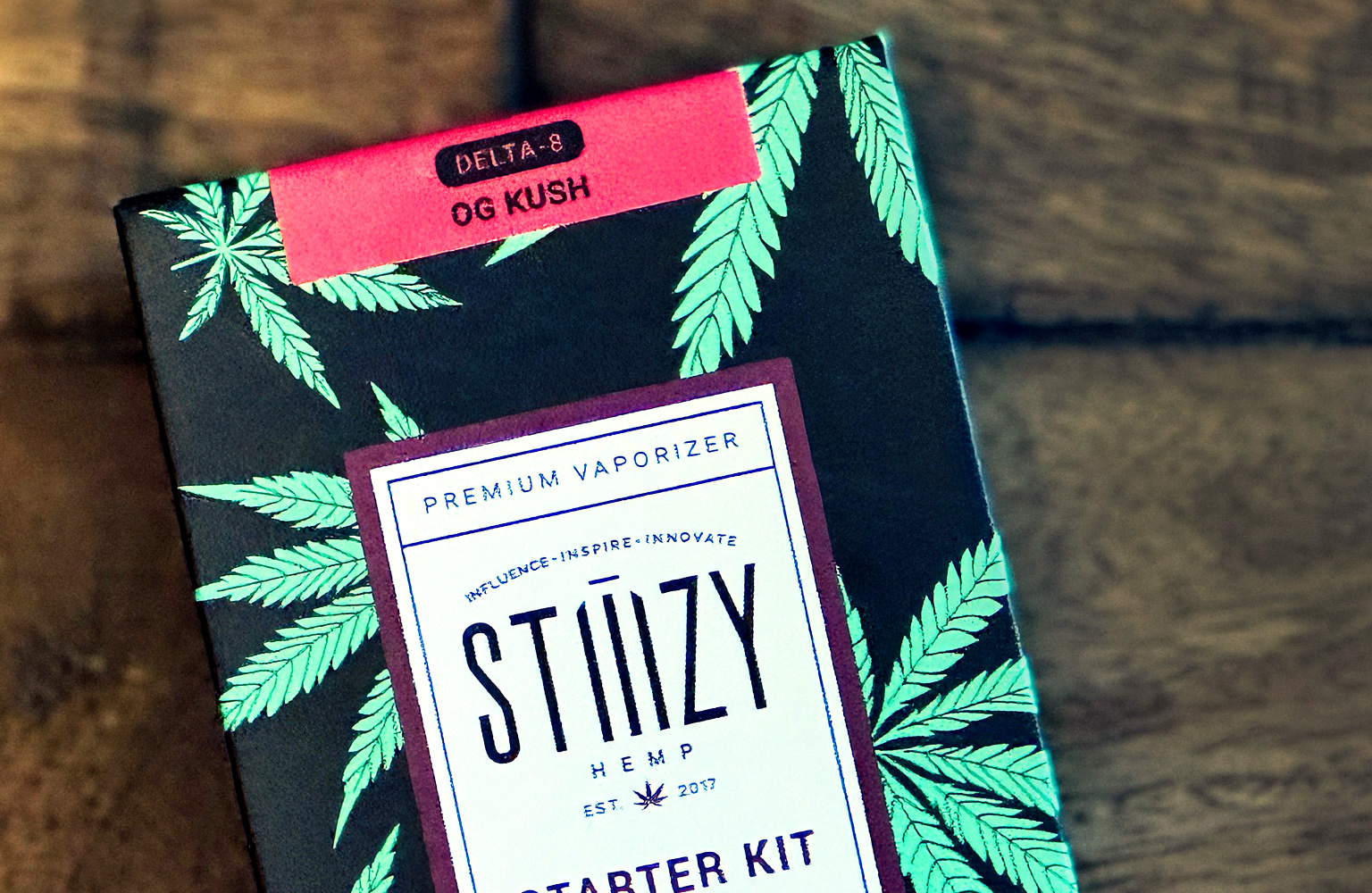
What comes to mind when you think of the word “marijuana?” Maybe you think of the bad kids at school passing around a joint or the obvious (bad) smell associated with marijuana. You think: “surely my kid would NEVER get involved with that.”
Well, we hate to tell you this, but that idea of smoking marijuana (pot, weed, THC, whatever) has completely changed. With the legalization of THC use at certain levels (more on that later) and the advent of vaping (better than cigarettes, right?), it’s become easier than ever (and more acceptable) for teens to get their hands on vaping cartridges that contain THC – or even vaping pens that are specifically designed to be used with THC (such as Stiiizy).
In addition to accessibility, it’s become more socially acceptable, as views of THC use, especially in younger generations, have moved from taboo to trendy.
What’s a mom to do? We’re with you on that. We’ve got some quick-read info giving the low-down on this teen trend and what you can do if your child is involved or – heaven forbid – hurt by using Stiiizy THC pens.
What Is THC and Is It Addictive?
Let’s step back for a minute and talk big picture. What exactly is THC and how did it become so accessible to teens?
THC is tetrahydrocannabinol, the psychoactive component in marijuana that gives users a “high.” Plenty of kids think cannabis products on the open market are less dangerous than illicit drugs because cannabis is advertised like candy – safe and healthier, at least, than more serious addictive substances like nicotine, alcohol, and fentanyl. Hmm.
THC is legal today for recreational use in 24 states plus Washington D.C., supposedly regulated at <0.3 (less than 0.3%). The industry, though, is largely unregulated and studies report potency can be much higher than the packaging may indicate.
And yes, cannabis THC is addictive to some. Maybe less so than meth or heroin, but young people think Delta-8 products are safer and healthier because they’re advertised pretty much like happy snacks. If they were so dangerous, why would they be available at thousands of dispensaries and online, no ID required?
“With THC levels close to 100 percent, today’s cannabis products are making some teenagers highly dependent and dangerously ill.”
– The New York Times on June 23, 2022.
Stats from the National Institutes of Health (NIH) cite that 11% of 12th-graders reported using Delta-8 THC (D8) edibles or vapes on a semi-regular basis in 2023. Out of those, about 10% became addicted. All debating aside, kids are more vulnerable because their brains aren’t fully developed until around age 25.
Also this: “In 2022, for the first time ever, Americans said they consumed more cannabis on a near-daily basis than alcohol,” according to multiple major news sources.
Psychology Today pointed out:
- Delta 8 THC is promoted as a healthier, less addictive alternative to Delta 9 THC, which is traditional marijuana.
- Delta 8 THC products are not regulated by the FDA, so consumers don’t know their strength level or additives.
- Marijuana use can be dangerous, addictive, and harmful to developing brains.
Horrified parents and users are not taking this lying down.
Moms, How Can You Handle This?
Here are some signs that your kid may be using THC pens. (Since vaping hides the telltale skunk odor of burned marijuana,)
- Intoxication
- Altered perception
- Anxiety
- Panic
- Paranoia
- Dizziness
- Weakness
- Slurred speech
- Depersonalization
The NIH believes the best way for parents to help a child who’s using THC is not by punishing them but by being supportive and getting them the help they need. Parents, please use age-appropriate language to make sure your child understands the gravity of the situation and to best create space for open conversations about healthier ways to handle depression, stress, insecurity, and anxiety instead of using marijuana.
Please know that first-time users who consume large doses of THC are the most vulnerable to negative reactions. When kids eat D8 edibles, for instance, the delayed “high” – the drug has to start digesting first – may tempt a beginner to eat too much, too soon. When the high kicks in, it may be more than they bargained for.
More Is More Dangerous.
International researchers at Australia’s National Drug & Alcohol Research Centre warned in June 2024 that “overall evidence suggests cannabis use will bring forward diagnosis of psychosis by an average of 2.7 years and the risk of developing schizophrenia increases with the duration and dose of cannabis use.” Regular cannabis users invite double the risk of non-users, the NDARC says.
NBC covered a 2020 study on legalized marijuana in April 2024, citing that “high-potency cannabis products carry a greater risk of hallucinations and delusions compared with lower potency types.” NBC then broke the grim story of a teen who died suffering cannabis-induced psychosis from vaping cannabis with high-potency THC.
“Anders Gilliand was 17 when he started losing touch with reality. ‘He thought that there were higher beings that were communicating with him to tell him what to do or who he was,’ said his mother, Kristin Gilliand, who lives in Nashville.”
– NBC News, April 4, 2024.
Is This Problem Going to Get Worse?
“What we hadn’t known prior [to our study] was to what extent these products are reaching teens, which was a concern because they weren’t being comprehensively regulated,” said Dr. Adam Leventhal, executive director and lead study author at the University of Southern California Institute for Addiction Science.”
– CNN, March 13, 2024
Moms, please don’t be fooled. There is a crapshoot of THC in these easy-to-get, unregulated products plus potentially “unknown additives” like pesticides, toxic metal particles, and random unnamed toxins.
“Emergency calls to US poison centers regarding so-called synthetic cannabis jumped 88% between 2021 and 2022.”
– U.S. News & World Report reported on May 8, 2024
Today, a stunning 74% of Americans live in a state where it is legal to use recreational marijuana. That’s 15,000 dispensaries across the country compared to 3,500 total US McDonald’s franchises, not to mention the flood of offerings online.

If Your Teen Has Been Hurt by THC Pens, What Can You Do?
Our job at A Case for Women is to keep you informed of potential dangers that may affect you or your family.
If you or your child used Stiiizy products that resulted in an adverse reaction and you’re not sure what to do, you could contact us, tell us your story, and discuss joining the Stiiizy lawsuit that seeks substantial financial compensation to help with recovery and managing life after recovery. Your action could send a powerful message to others that it’s okay to come forward and seek legal help.
You will always communicate with a real person 24/7/365 when you contact A Case for Women. We observe that not many businesses and services in the world can be counted on in this day and age to act with honor and go the extra mile in the old-fashioned sense. We can.
Never hesitate to ask us for help, especially when it involves you or your child’s life.

